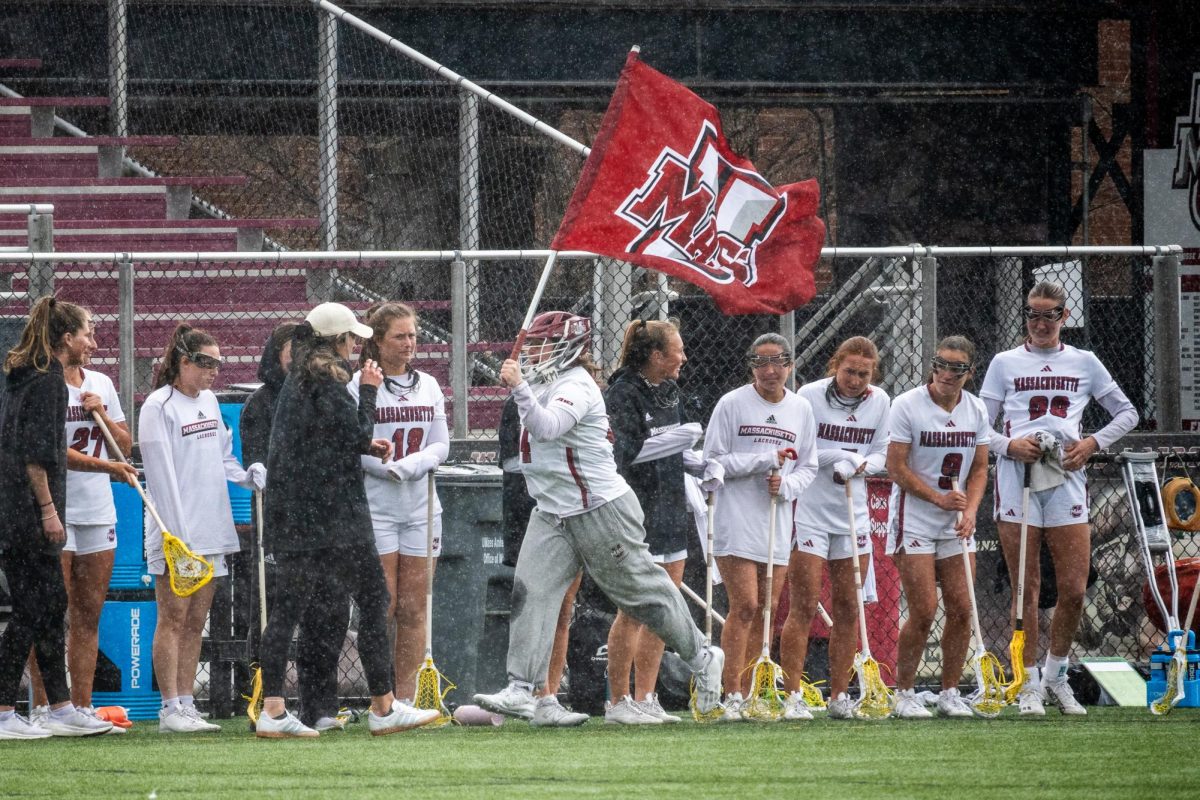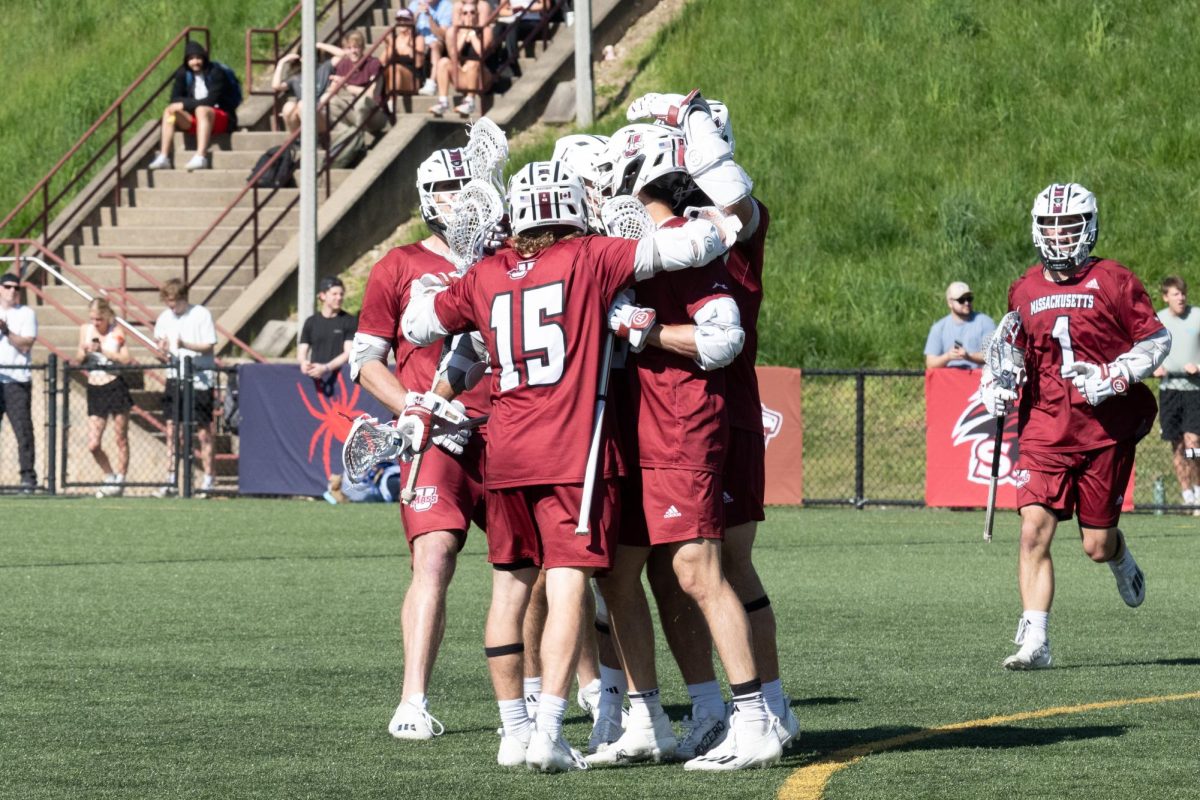Israeli-Arab journalist Khaled Abu-Toameh discussed the effects of censorship on the media reporting on the Israeli-Palestinian conflict with University of Massachusetts students earlier this week.
“I would rather see people talking with each other than killing each other,” said Abu-Toameh – an award winning journalist – to the crowded room last Wednesday night in the Campus Center.
Abu-Toameh has been a journalist for over 20 years in Israel and has seen first-hand the level of destruction caused by the power struggle between the state of Israel and the Palestinian people led by the political party Hamas since 2006.
The speech was co-sponsored by UMass Student Alliance for Israel, UMass Democrats, and Hasbara Fellowships, a group focused on educating students on Israeli and Middle Eastern history in addition to teaching students to be pro-Israel activists on their campuses.
“We brought Abu-Toameh here because he can give an insider’s perspective of the censorship that occurs in Palestinian areas and therefore why Americans can’t get the full picture of the hatred present in the Palestinian society,” said president of the Student Alliance for Israel Matt Hoffman.
“If talking to Hamas would end the violence I would go talk to the devil even just to end the violence,” said Abu-Toameh.
Abu-Toameh believes that for Israel to strike a deal with Hamas is the only way to resolve the conflict, even if it is only temporarily, without great financial loss and the loss of many lives for both sides.
The Israeli-Palestinian conflict is essentially a dispute over land, namely the West Bank and the Gaza Strip. Thus far the power struggle between the two has cost hundreds of thousands of lives, mostly civilian lives.
As a resident of Jerusalem and journalist for The Jerusalem Post and NBC news, Abu-Toameh knows the barriers placed upon journalists in both Israel and Palestine when reporting news of the conflict.
In Israel he is free to write what he wants and does not have to deal with the brutality of government censorship in Palestine, he said.
“I found it sad and ironic that as an Arab-Muslim I’m more free to work for a Jewish newspaper than a Palestinian one,” said Abu-Toameh who had began his journalistic career as a writer for a newspaper run by the Palestinian Liberation Organization (PLO).
“I have no problem working for any newspaper that gives me a free platform,” said Abu-Toameh.
When asked by a member of the audience what he considered most detrimental to a journalist in terms of censorship, Abu-Toameh answered that he believed “self censorship is much more destructive, much more dangerous.”
He went on to say that when editors censor their writers there is nothing a writer can do about it, but when a government censors writers there are always ways to get around it.
According to Abu-Toameh, when Yasser Arafat came to power in Palestine everyone had high expectations for him but Arafat decided to crack-down on the Palestinian media so that every journalist was completely loyal to him. Many Palestinian journalists were fired, beat up or had their offices torched if they spoke against the government, or had to flee the country, he said.
“Arafat created a media that was no different than the media under Saddam Hussein,” said Abu-Toameh.
Between 1994 and 2001, Arafat spent the money and power he had as the leader of the PLO on corrupt endeavors.
“Instead of building a hospital, Arafat built a casino,” said Abu-Toameh.
According to Abu-Toameh when journalists, including himself, tried to warn the government of what Arafat was doing they were told that it was Jewish propaganda against the Palestinians.
“Our job as journalists is to criticize the government and to report the truth,” stated Abu-Toameh when asked by his colleagues why it was important for them to continue to report what was happening despite the Palestinian dismissal of their work as Jewish propaganda.
According to Abu-Toameh when Hamas won the 2006 election replacing the political party Fatah, which was started by PLO leaders, Palestinians were hopeful that things would be better and the corruption of Fatah would be over. The PLO refused to accept defeat and was given financial support from the U.S against Hamas.
Although Hamas publicly states that it does not recognize Israel’s right to exist, Hamas does express willingness to form a truce or some sort of security arrangement, according to Abu-Toameh.
Abu-Toameh described Hamas as a “reliable enemy” much more discipline than Fatah and prepared for a truce with Israel.
“You can’t wipe out Hamas,” said Abu-Toameh, “As long as Palestinians see Hamas as victims of Israel and the U.S they are not going to turn against them.”
However Abu-Toameh assured students that although Hamas has the support of the Palestine people over the PLO, if they lose the faith of the people they will be brought down.
“Palestinians are not stupid, no one forced them to vote for Hamas,” said Abu-Toameh, “The minute Hamas does something wrong the Palestinians will pull them down and execute them in Gaza.”
Abu-Toameh is currently in a lecture circuit around America to present the facts about the Israeli-Palestinian conflict, not to sensationalize or promote the interests of either side, he said.
“I’m not pro-anything, I’m just a reporter,” said Abu-Toameh.
“I condemn the killing of any civilian, Jewish or Palestinian,” he said. “I don’t see the difference when a Jewish mother cries or when a Palestinian mother cries.”
Jennifer Heshion can be reached at [email protected].






